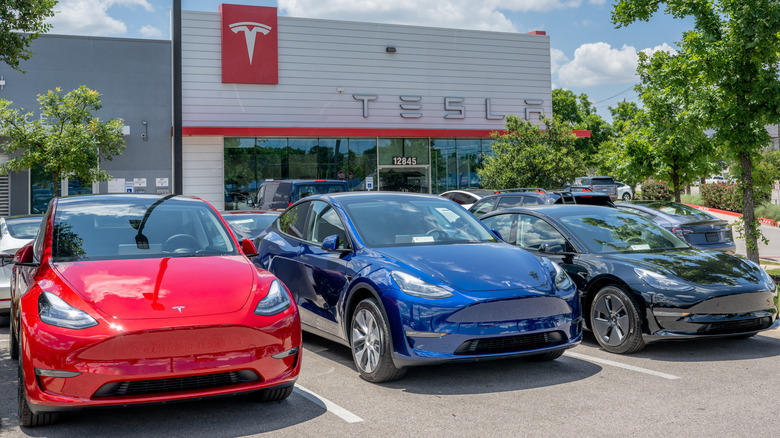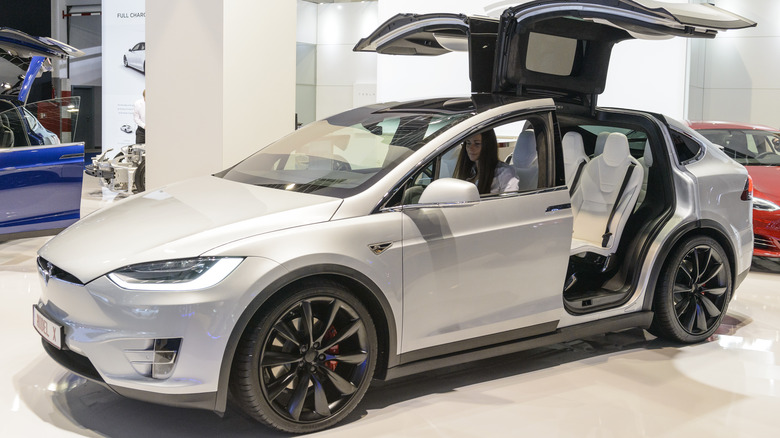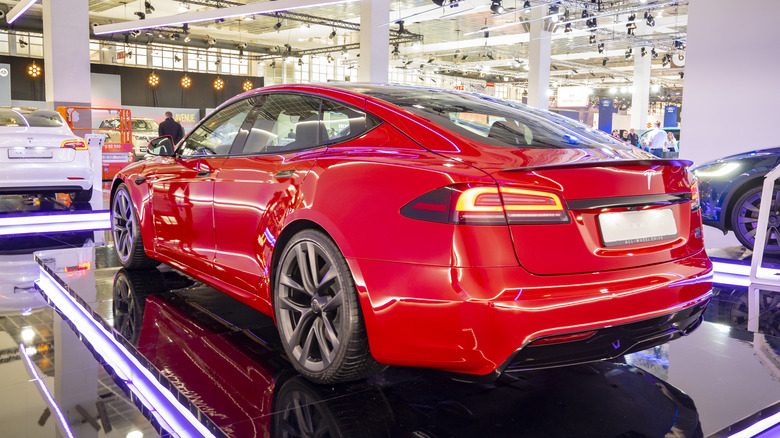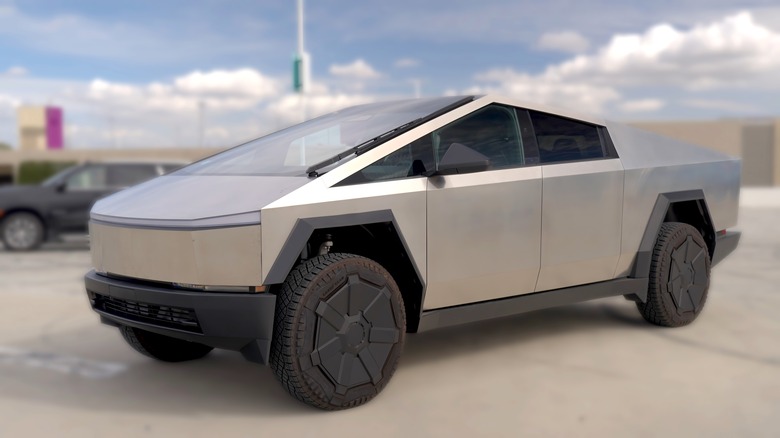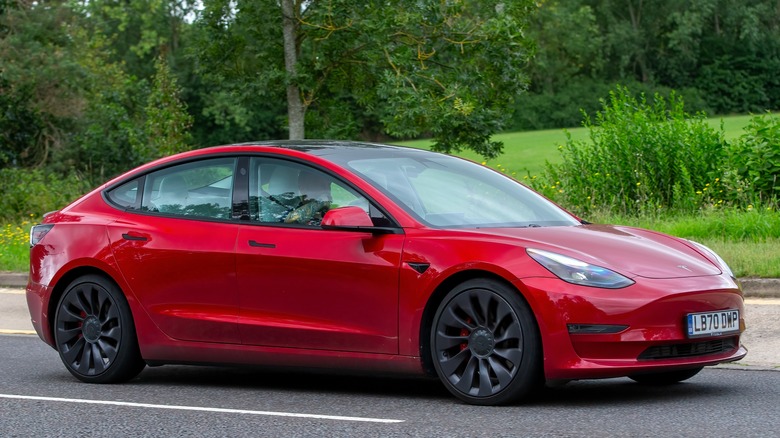Everything You Need To Know About Your Tesla Warranty
All new Tesla vehicles leave the factory with what the American automaker calls a New Vehicle Limited Warranty. The package includes prescribed warranty periods for the car, the supplemental restraint system, the battery pack and drive unit, and the body rust limited warranty.
The Tesla basic vehicle warranty is for four years or 50,000 miles, whichever comes first. The coverage begins on the first day the new Tesla delivers to its corporate, retail, or lease clients. Meanwhile, the supplemental restraint system has a five-year/60,000-mile warranty (whichever comes first) and covers any defects to the materials or quality of the seat belts or airbags.
One of the most essential guarantees buyers should know about when purchasing a new electric car is the battery and drive unit warranty. The battery pack is the costliest part of any EV, and having a lengthy warranty covers the cost of replacement if the battery pack (or electric motors) fails or degrades within the prescribed warranty period.
Tesla battery, drive unit, and body rust limited warranty
For new Tesla EVs, the battery and drive warranty depend on the model. All Tesla Model S, Model X, and Cybertruck variants have an eight-year or 150,000-mile battery warranty. In addition, Tesla guarantees a minimum 70% battery capacity retention within the warranty period, and the automaker will repair or replace the unit with a new, reconditioned, or re-manufactured part at Tesla's discretion.
On the other hand, the Tesla Model 3 and Model Y RWD have an eight-year or 100,000-mile battery warranty. At the same time, there's an eight-year/120,000-mile battery warranty for the Long Range and Performance Model 3s, as well as the Model Y All-Wheel Drive, Performance, and Long Range.
Meanwhile, the Tesla body rust limited warranty covers rust perforation from materials or quality defects for 12 years and unlimited miles. However, Tesla states the warranty only covers rust, holes, or perforations "through the body panel from the inside outwards."
Moreover, the warranty does not cover corrosion from defects in non-Tesla manufactured or supplied materials, perforation from the outside-in like paint scratches and stone chips, or those resulting from abuse, accidents, neglect, exposure to chemical substances, acts of God, fire, or improper storage.
The Tesla New Vehicle Limited Warranty includes a limited parts, body, and paint repair warranty, which provides a limited lifetime warranty for the sheet metal, a two-year/25,000-mile warranty for the touchscreen and media control unit, and a four-year warranty for the wall connectors.
Tesla used vehicle warranty
The Tesla New Vehicle Limited Warranty is transferable to buyers or owners of used Tesla EVs. However, the purchase should be through an authorized Tesla retailer for the warranty to take effect. All used Tesla electric cars are covered by what remains of the four-year or 50,000-mile basic vehicle warranty, including the SRS, battery, and rust warranty.
Once the warranty expires, Tesla has a used vehicle warranty that offers extra coverage of one year or 10,000 miles (whichever comes first). Like the new vehicle warranty, the Tesla used vehicle warranty is transferable at no cost and will take effect from the delivery date, provided the purchase was through an authorized Tesla retailer.
If the basic vehicle warranty has expired, the used vehicle warranty will kick in from the used Tesla's delivery date and odometer reading. The used vehicle warranty will include roadside assistance when applicable. Tesla claims the used vehicle warranty does not extend or alter the original New Vehicle Limited Warranty but "remains in effect concurrently" with the used vehicle warranty.
Tesla warranty limitations
There's no denying that Tesla EVs have established the goalposts for electric car performance, range, and features. But then again, the Tesla Model 3 is known to have quality issues, while Tesla's Model X has design and reliability problems.
Compounding the known and rampant build quality problems of Tesla cars is the automaker's penchant for changing the terms, conditions, and limitations of its new and used vehicle warranties, with some owners accusing Tesla of doing so to shield the carmaker from warranty claims stemming from poor material choices or shoddy craftsmanship, according to InsideEVs,
The result is a flood of denied Tesla warranty claims on the internet, and according to Reuters, Tesla has blamed drivers for part failures it knew were substandard from the onset. With this in mind, it's worth understanding the limitations of Tesla's new and used vehicle warranties before making a claim or making the decision to buy a Tesla.
Like other new car warranties, the Tesla New Vehicle Limited Warranty and Used Vehicle Limited Warranty will not cover malfunctions or damages caused by normal wear or deterioration, abuse, misuse, negligence, accidents, improper maintenance, storage, or transport. Tesla's New Vehicle Limited Warranty for the Model S, Model 3, Model X, Model Y, and Cybertruck will not apply if you bring the vehicle to a different warranty region.
In other words, you must return the car to the original warranty region when making a claim, "regardless of the country in which such purchaser or transferee may have purchased the vehicle," according to the current Tesla documentation.
Voided Tesla Warranties
There are particular entries in the limitations and exclusions section of the Tesla New Vehicle Warranty that are worth mentioning. For instance, driving the Cybertruck off-road could void the vehicle warranty, and the same applies if the Cybertruck's suspension and steering are damaged or compromised after driving over curbs or even potholes. Given the Cybertruck's embarrassing off-road performance, this may not come as a surprise.
The Tesla warranty will not cover scratches, chips, cracks, or defects in the windshield and window glass, except if the damage results from defective materials or poor installation at the factory. If you recall the spectacular public Cybertruck damage tests conducted by Tesla CEO, Elon Musk, on the vehicle's windscreen, you might raise an eyebrow at this exclusion.
Applying rustproofing treatments will void the body rust warranty.
The warranty also doesn't cover damage to the vehicle's hardware or software from "bugs, malware, viruses ... or cyber attacks." Tesla EVs are essentially software-defined cars, so this is especially disconcerting.
Moreover, failure to comply with any recall advisories or install software updates will void the warranty — despite reports of new or lingering software issues after installing said updates. In 2021, Tesla agreed to pay $1.9 million to settle claims that a software update reduced the maximum battery voltage in thousands of Model S sedans.
In 2023, Tesla owners in California filed a class action lawsuit against the automaker, claiming a 2019 software update for the Model S and Model X reduced the driving range by up to 20% while causing irreparable damage to the battery pack in some cases. Whether that battery damage would be covered under warranty is unclear.
